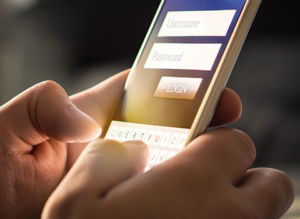New Phone Scam Scares with Social Security Sham
We all get scam phone calls, but the newest one is meant to scare. When you pick up the phone, you get a message that your Social Security number is suspended due to suspicious activity, and then prompts the victim to speak with an agent to get help.

The FTC makes something very clear: your Social Security number cannot be suspended for any reason, so any call that states your SSN is under suspension is a scam. What they are really trying to do is to trick you into giving them your actual Social Security number along with information such as your birthday and bank account number.
This scam is just a tricky variation of a scammer’s trick that often works. In this case, they are trying to scare you first, and then offer to help…but in reality, these scammers are trying to steal your information.
Remember These Social Security Facts
If you get a call about your Social Security number, you should remember the following:
- The Social Security Administration only calls from one number: 800-772-1213.
- A Social Security Number cannot ever be suspended.
- The Social Security Administration won’t ever threaten an arrest.
- You will probably NEVER get a call from the SSA.
Also, of course, remember this: NEVER give your SSN to someone who contacts you that you don’t know.
The Scam
There are a few variations of this scam. The first is that they call and say that your SSN is suspended due to suspicious activity. They then say, if you want to know more about the case, press 1. When you do, of course, you are connected to an agent who is trained to get your information.
Another variation of this scam is a bit more aggressive. In this case, it states that law enforcement has suspended your Social Security number because of suspicious activity. You are advised to call a toll-free number immediately and verify your SSN. The scam also claims that if you do not call the number, an arrest warrant will be issued, and you, of course, would be arrested. Though not everyone will get one of these calls, if you do, you should definitely pay attention. Again, the SSA would never suspend a Social Security number, nor would it threaten to arrest you. It’s also good practice to never give you SSN to anyone who asks for it over the phone. Instead, hang up and go on with your day.
Robert Siciliano personal security and identity theft expert and speaker is the author of Identity Theft Privacy: Security Protection and Fraud Prevention: Your Guide to Protecting Yourself from Identity Theft and Computer Fraud. See him knock’em dead in this Security Awareness Training video.

 How do Hackers Steal Frequent Flyer Miles?
How do Hackers Steal Frequent Flyer Miles? The scam started out fairly small and localized, but now, people from across the country are reporting that they are getting calls from people stating that they are from the Social Security Administration. The caller attempts to get personal information from the person they call including address and banking information.
The scam started out fairly small and localized, but now, people from across the country are reporting that they are getting calls from people stating that they are from the Social Security Administration. The caller attempts to get personal information from the person they call including address and banking information. This type of identity theft shows us that our credit system is more vulnerable than we might think. Basically, it is easy to create a credit file on these identities, and once they have that, they can get a credit card or loan.
This type of identity theft shows us that our credit system is more vulnerable than we might think. Basically, it is easy to create a credit file on these identities, and once they have that, they can get a credit card or loan. How does this work? If a hacker already has your mobile phone number, they can get other information, such as you address, birthday, or even the last four digits of your Social Security number, through social engineering schemes via email or on social. Once they have this information, it’s like handing your phone over to them and letting them do as they please, including accessing your accounts.
How does this work? If a hacker already has your mobile phone number, they can get other information, such as you address, birthday, or even the last four digits of your Social Security number, through social engineering schemes via email or on social. Once they have this information, it’s like handing your phone over to them and letting them do as they please, including accessing your accounts. For years now, wallets have been on the market that you can stuff everything into, save for the kitchen sink. This doesn’t mean you must carry a
For years now, wallets have been on the market that you can stuff everything into, save for the kitchen sink. This doesn’t mean you must carry a 


























